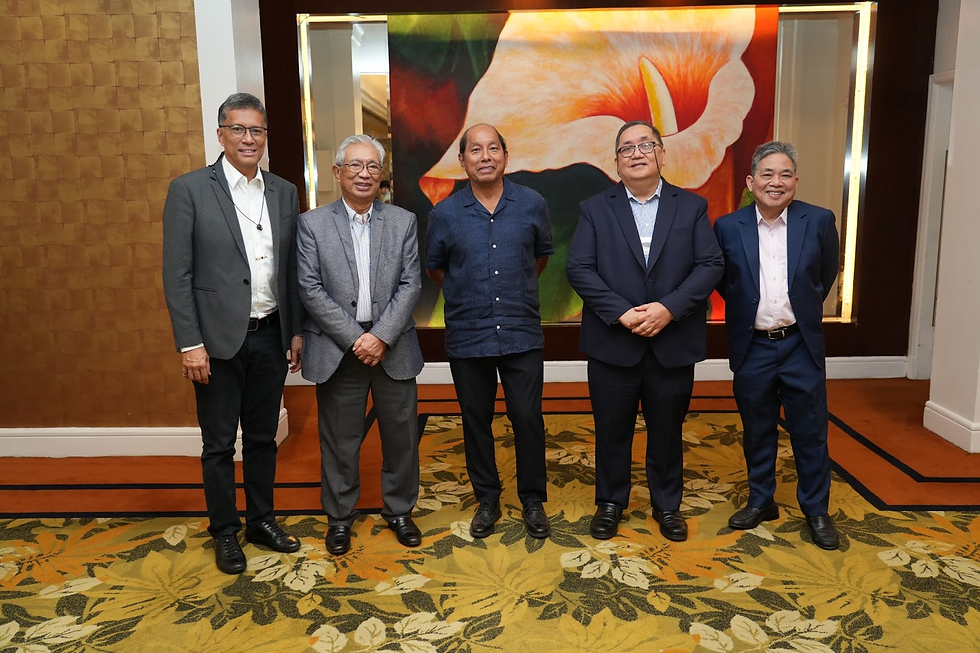WHAT IS TO BE DONE?
- Action for Economic Reforms
- Jul 23, 2005
- 3 min read
As part of its larger advocacy efforts, Action for Economic Reforms (AER) has recently focused its attention to the mounting political and economic crises that currently beset the country. The key features of AER’s advocacy on the broader economic and governance issues are to build public awareness and to facilitate healthy dialogue and intervention toward reform.
In light of the very serious crisis that our country is currently facing, the question of reforming not only policies but institutions as well has become imperative. Even as this political crisis has yet to be resolved, we should be thinking of short-term and strategic measures that will lay the foundation for stronger and more robust institutions that will address the chronic political and economic crises that shake Philippine society.
To address these problems, Action for Economic Reforms (AER) and Business World (BW) co-sponsored a forum entitled, “What is to be done?” last July 22, 2005, 8:30 a.m. at the Columbus Room, 42nd Floor, Discovery Suites, ADB Avenue, Pasig City.
The objectives of the forum were as follows:
Discussion of current political and economic issues by local experts. Participants will gain invaluable insights of the speaker’s personal assessment and recommendation on the issues.
To inform the public about the implications of the current political and economic crisis.
Present during the forum was a multi-sectoral audience of about 90 individuals representing the following sectors: (1) Non Government Organizations (NGOs), (2) academe, (3) media practitioners and (4) business sector, (5) former government policy-makers and (6) Business World subscribers.
The speakers were the following:
Dr. Josef T. Yap, President of the Philippine Institute of Development Studies (PIDS)
Dean Raul Pangalanan, College of Law, University of the Philippines
Fr. Jose Magadia, Executive Director, Department of Social and Public Affairs, Ateneo de Manila University.
Dr Heinz Bongartz, of the Friedrich Ebert Stiftung Philippine Office, gave the opening remark.
Following are the summary of the speakers’ presentations:
Dr. Jose T. Yap
[The] current political and economic problems in the Philippines should be understood within the context of evolving global parameters and historical experience. The most pressing global economic issue is related to the international financial architecture, in general, and the trans-Pacific macroeconomic imbalance, in particular. One response to the uncertainty spawned by this problem is the acceleration of regionalism in East Asia. It is critical that this process be as equitable and peaceful as possible. The latter criterion is at risk due to heightened tensions between the US and China and perhaps this has filtered into domestic politics causing the crisis Philippine society is experiencing at present. Before answering “What is to be done?” it would be useful to look back at antecedents in order to avoid “slaying the devil but at the same time sparing and even strengthening Satan.” (download presentation, in .ppt)
Dean Raul Pangalanan
The following are the key issues presented on his speech:
The legal precedence and constitutionality of “People Power.”
Assessment of landmark Supreme Court cases and decisions on important leadership succession and political crisis.
A clarification of the role of the Constitution and an examination of the concept of “rule of law.”
Review of the current political situation and the highly contentious options/ alternative measures to address the burgeoning political crisis.
Examination of the “I am sorry speech” and the “wire-tapping case”. Assessment of the political and legal implications of the issue. (download presentation, in .doc)
Fr. Jose Magadia
There are three parts of his presentation:
Where are we? The current political crisis and PGMA
What is to be done? Addressing the issues of accountability; In search for sustainable solutions that will not jeopardize development; constitutionality and non-violence; Dream situation
Where do we want to go? Rationalization of Charter Change and institutional reform; In depth assessment of the various reforms: electoral, political and bureaucratic. (download presentation, in .ppt)
An open forum followed.



